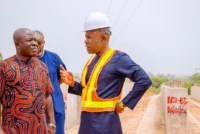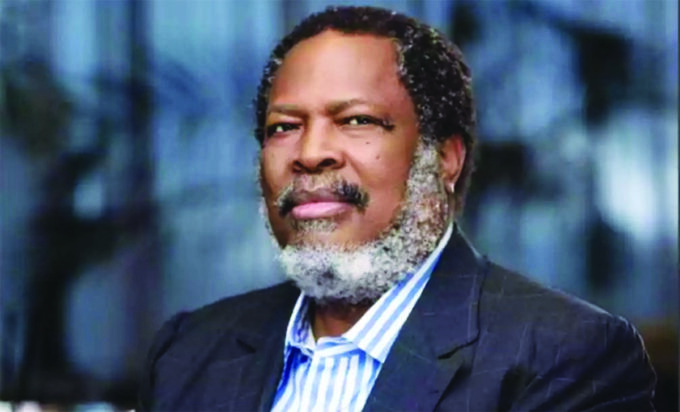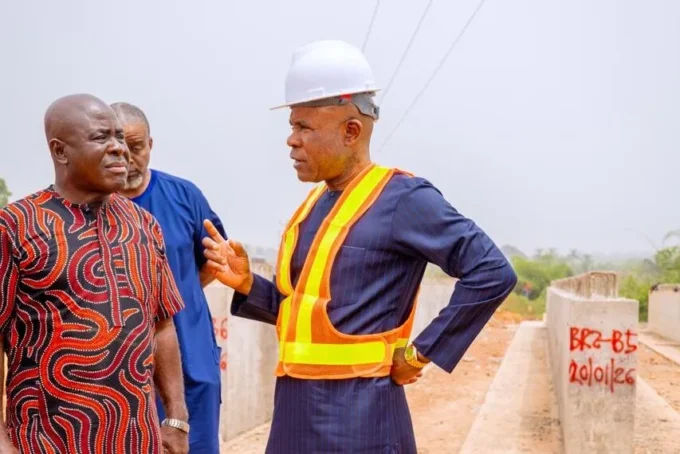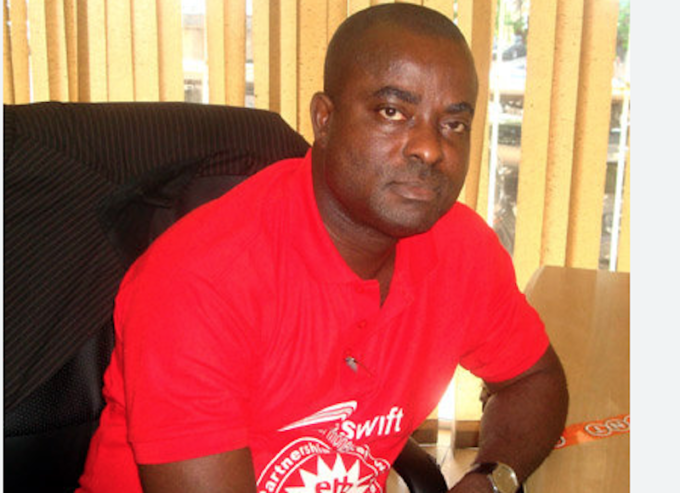Sunday Ehigiator
The South-south region of Nigeria, long celebrated as the nation’s “oil and gas capital,” is entering a new era of transformation. Beyond its oil wells and gas pipelines, the region is steadily being redefined by the power of infrastructure, roads, bridges, and civic projects that are opening new economic pathways for millions.

At the heart of this transformation is the leading engineering construction company, Julius Berger Nigeria Plc, a construction firm whose presence is now being reinforced across Nigeria, especially in the South-south states of Akwa Ibom, Bayelsa, Delta, and Rivers.
For decades, the region has been Nigeria’s revenue engine, contributing massively through oil and gas. But the region is far more than hydrocarbons. Its diverse ethnic communities, Ibibio, Efik, Ijaw, Itsekiri, Urhobo, and Ikwerre, among others, sustain rich cultural traditions. Its geography of rivers, mangroves, and coastlines supports agriculture, fishing, and tourism.
The challenge has always been how to connect these potentials to prosperity. Notably, the federal and state governments are relying on Julius Berger’s engineering prowess to make it happen.
Akwa Ibom: Built Bedrock of Modernisation
Akwa Ibom, one of Nigeria’s fastest-growing states, largely witnessed an infrastructure revolution over a decade ago when Julius Berger in collaboration with the state government, was central to the progress, delivering landmark roads, drainage systems, and bridges that laid the foundation for new standards in durability and design.
The Abak–Ikot Ekpene Road stands as a prime example. Built with reinforced layers designed to withstand high traffic volumes, it is engineered to last generations. Complementing this is the use of trenchless “pipe-jacking” technology in drainage construction, an innovation that reduces disruption to residents and safeguards the environment.
Perhaps the most symbolic is the Uyo, Abak Bridge, a 343-metre structure linking Ikot Ekpene to Port Harcourt. Constructed on nearly 700 reinforced piles and launched incrementally to overcome weak soil conditions, the bridge is not just a physical connector but a statement of ambition for Akwa Ibom’s future. The 30,000 sitting capacity state-of-the-art Uyo stadium and the International Worship Centre, also in the state capital, easily complement the rising modernisation Julius Berger has brought to the state.
Bayelsa: Honouring History, Building the Future
Julius Berger’s presence in Bayelsa state predates the current dispensation. If Akwa Ibom’s projects represent the future, Bayelsa’s current landmark project bridges past and present.
The company had been in the coastal state assisting in the infrastructural development of the area, building structures that have endured till date. Its current efforts in Bayelsa state is thus, another opportunity to contribute its professional quota towards further solidifying not just the relationship with the people of the state, but to to strengthening the bonds that bind them together.
Currently, in Otuabagi, Ogbia LGA, the site of Nigeria’s first commercial oil discovery in 1956, Julius Berger is constructing the long-awaited Oloibiri Oil Museum and Research Centre.
Awarded by the Federal government-owned Nigerian Content Development and Monitoring Board (NCDMB), the project is envisioned as both a national monument and a modern research facility. It will house an interactive museum showcasing Nigeria’s oil and gas history, complete with geological exhibits, early drilling equipment, and digital engagement tools.
For the people of Oloibiri, the project is more than concrete and steel. It is recognition of their community’s role in shaping Nigeria’s economic destiny. It may even attract more developmental projects in the area, said a local fruit seller, Priye Ebikeme.
For the country, it represents a hub where academia, industry, and history will converge. “We are on. No time wasting,” said Project Manager, Finn Drosdowski as Julius Berger mobilised swiftly to site. “It is our job to discharge our contracts professionally and on schedule,” he added.
Delta: Making the ‘Big Heart’ Beat Again
Delta State nicknamed the “Big Heart of the Nation,” is pulsing with renewed energy. In October 2023, the state government awarded Julius Berger a N78 billion contract to overhaul transportation in Warri and Effurun.
The ambitious project covers three flyovers, an expansion of the DSC/NPA Expressway from four to eight lanes, a cloverleaf interchange, and two pedestrian bridges. For years, chronic gridlock had stifled commerce and daily life in the bustling hubs of Effurun and Warri. The new road network promises not just relief but rebirth.
Local enthusiasm is palpable. “Julius Berger should finish the job in time for us to get our groove back; the big heart must beat well again,” said estate agent, Mr. Igho Ogheherukevwe at Effurun Roundabout.
The Project Manager, Thomas Haug did not mince words in assuring residents that work is advancing at a pace that may even beat the official deadline. For many, the flyovers are more than engineering feats; they are symbols of a city reclaiming its vibrancy.
Rivers: Unlocking the Treasure Base
Rivers State, often referred to as Nigeria’s “Treasure Base,” is also benefiting from Julius Berger’s touch.
After completing 12 flyovers in Port Harcourt, the company is now building the 50.15-kilometre Port Harcourt Ring Road, a dual carriageway that will connect six Local Government Areas.
Even more ambitious is the Bodo–Bonny Road, the first road in history to access Bonny Island, home to Nigeria Liquefied Natural Gas Company, NLNG. The 35.7km stretch cuts through swamps, tidal zones, and flood-prone terrain, requiring some of the most advanced engineering in Nigeria today.
The project’s significance cannot be overstated. “This will unlock tremendous opportunities for Bonny Island, enabling socio-economic development across the region and beyond,” said Chief O. R. Longjohn, Chairman of the Bodo-Bonny Road Peace Committee. Despite security concerns, construction continues steadily.
Additional works, such as the Buguma–Abonnema road in Emohua LGA, are gradually opening previously inaccessible riverine communities to commerce and development.
Engineering a South-South Renaissance
From Akwa Ibom’s bridges to Bayelsa’s museum, Delta’s flyovers, and Rivers’ Road corridors, Julius Berger’s projects are more than infrastructure; they are catalysts of transformation.
Each bridge connects more than towns; it links opportunities. Each road extends beyond asphalt; it paves the way for commerce, culture, and cohesion.
In a region too often defined by resource conflict and neglect, these engineering milestones suggest another narrative: one of shared prosperity built on solid foundations. Julius Berger’s imprint across the South-South is steadily turning oil wealth into infrastructure wealth, a shift that could define Nigeria’s next chapter of development.

















Leave a comment